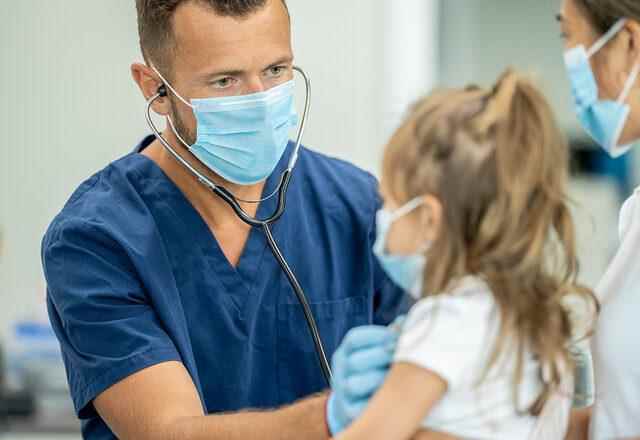Salmonella, one of the bacterial species that cause disease in humans, is found in the intestines. Salmonella is found in raw or undercooked meat, eggs, unwashed fruits and vegetables, and unpasteurized milk. It is found in feces other than food and can be transmitted with unhygienic water and food. Salmonella infection, which is seen in both adults and children, causes more effects because children have low immunity. Upset. Dr. Seda Günhar gave information about the effect of salmonella on children.
TRANSMITTED WAYS OF SALMONELLA
- Salmonella, in some cases, diarrhea can cause severe dehydration and require immediate medical attention. Life-threatening complications can also develop if the infection spreads beyond the intestines. Salmonella infection can be transmitted by:
- Mixing of human and animal wastes into spring waters
- Insufficient chlorination of drinking water
- Consumption of poorly cooked meat, eggs, milk and dairy products that carry Salmonella
- Drinking or using water of unknown origin
- Consuming unpasteurized milk or cheese
- Eating dirty raw vegetables, fruits, spices or snacks
- Contact with poultry
- Contact with sick people
MAY NEED HOSPITAL INSURANCE

The highest risk group for Salmonella is children, the elderly and people with compromised immune systems. In this group, the infection may be more serious. The clinical picture begins after an average of 12-72 hours in people infected with Salmonella bacteria. Clinical findings may not occur in most patients, but high fever, abdominal pain, nausea, vomiting and diarrhea are the most common complaints especially in the high-risk group. Some patients may require hospitalization because of these complaints. The illness usually lasts 4-7 days, and most people recover without treatment. In some people, diarrhea may be severe enough to require hospitalization.
SPREADING SO FAST
Salmonella is a bacteria that can spread very quickly because it is transmitted by water and food. In order to prevent the spread of salmonella, it is necessary to comply with the rules of personal hygiene and to avoid the consumption of raw food from unsafe places. Salmonella can also be transmitted from many food items that children love and consume. For example, it is more common in protein foods such as eggs, milk, soaked rice pudding, wet cakes that have not been stored properly, contaminated chocolates, ready-made products such as cookies, and chickens that have been kept outside. To avoid Salmonella, high-risk foods such as raw, undercooked eggs, meat or poultry, shellfish, and unpasteurized milk should be consumed after thorough cooking.
DIET SHOULD BE MADE FOR TREATMENT

Salmonella group patients should start antibiotic treatment prescribed by the doctor after being examined. In addition to antibiotic treatment, it is important to ensure adequate fluid intake, supportive treatment for diarrhea and diarrhea diet. In the diarrhea diet, high-energy foods such as mashed potatoes, rice porridge, lean boiled pasta, and potassium-rich foods such as bananas should be preferred. In addition, it can also be transmitted within the family. Probiotics should be recommended with or without symptoms in family members.
